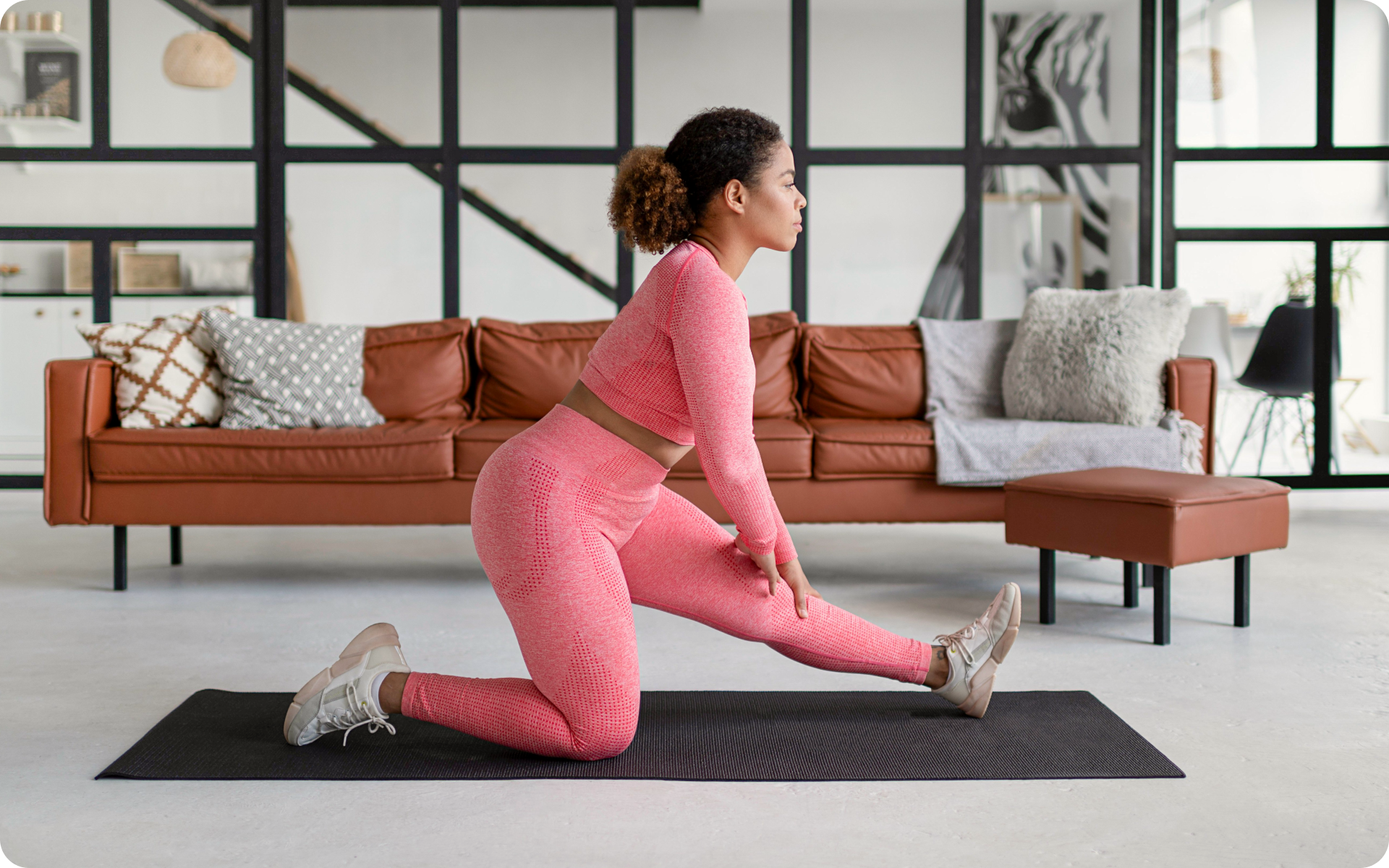Losing weight is tough, regardless of your age. Staying away from those tempting foods and exercising regularly isn’t an easy feat. A person must change their entire lifestyle just to shed a couple of pounds. However, it’s also true that losing weight can become more difficult as you get older. This is because seniors don’t burn as many calories as young people, and burning more calories than your intake is the basic driver of weight loss.
According to research in the World Journal of Men’s Health, aging slows down resting metabolism, which results in physiological and functional impairments (8) (15). A lot of this comes from a gradual decline in activity throughout the aging years that also leads to reduced muscle mass. Structured programs for losing weight after 70 aren’t simply about looking good, they’re also good for your health. Weight loss can prevent weight-related issues such as obesity, which is associated with several health problems, including hypertension, cancer, hyperlipidemia, osteoarthritis, diabetes, sleep apnea, and cognitive dysfunction (19).
Given all the perks of losing weight after 70, it’s no surprise that you’ll find many seniors at the gym or seeking help from registered dietitians. If you’re confused and don’t really know how losing weight in old age helps, this is the place to be. Below, we discuss the importance of weight loss after 70 and how you can do it.
Can a 70-Year-Old Person Lose Weight?
You can lose weight at any age bracket if you make significant lifestyle changes and follow them consistently.
However, you shouldn’t do so just because you want to fit into societal standards of how a person should look. You should do it because you want to stay fit and healthy without depending on anyone as you age.
One study has shown that the population of aging people in the U.S. is expected to be more than double by 2050 and that there will also be a high prevalence of those who are both elderly and obese (9). You can slowly incorporate a healthy lifestyle to avoid becoming overweight in the future. Even if you’re 70 already, you can start taking small steps to achieve your desired weight loss.
A recent study on JAMA Network Open revealed that getting into a weight loss program early in adulthood may lead to a 50% reduction in the subsequent risk of early death (2).
If you tend to let yourself off the hook, raise the white flag when things get tougher than you expected, send yourself on an unconscious binge-eating trip – BetterMe app is here to help you leave all of these sabotaging habits in the past!
How Can I Get Slim at 70?
One mistake many seniors make when trying to lose weight is abruptly leaving all their unhealthy patterns. Having an all-or-nothing approach like this may make them feel a strong compulsion to return to their old habits. Take baby steps instead. For example, if you eat dessert every day, try eating it 4 times a week instead. If you develop new habits and don’t go for drastic switches, you’re more likely to stick to them.
There are several tips to help you get slim at 70. We discuss a few helpful tips later in this article. But first, we want to stress that you shouldn’t obsess over the scale. Your weight can fluctuate from one day to the next. However, if you feel strong and energetic and your clothes seem less tight, you’re probably following the right track.
Understandably, old folks don’t have the time or energy to stand in the kitchen and prepare healthy meals. If this sounds like you, you can check out the meal services in your area. There are lots of individuals and agencies who deliver fresh, healthy meals to subscribers who are following a no-sugar diet or generally want to get back in shape with their diet.
Healthy Habits to Lose Weight After 70
During old age, weight gain occurs for several reasons other than aging. For example, lifestyle, eating habits, and lack of physical activity may cause you to add more pounds, so you need to cut out these habits for a healthier life. Have a workout routine and diet plan that is suited to your needs and bear in mind that your body is not the same as it was when you were younger. As you grow older, your bones and muscles become more delicate, so too much weight loss, extreme exercise, and restrictive diets may not be the best way to lose weight for men and women over 70.
Losing Weight After 70: Dieting
Bad eating habits are one of the most common causes of weight gain at all ages. Generally, people need to reduce calories every day to lose weight. The best diet for those who are trying to lose weight at 70 differs from that for young people because as you grow older, metabolism reduces, partly due to a significant drop in levels of testosterone and human growth hormone (HGH), and this is responsible for a drastic loss of muscle mass (15). Secondly, you may have more time to eat in your old age than in your youthful years where most days were spent around sports, exercise, jobs, traveling, and activities. Here are some food-related changes you can consider making:
Calculate Your Daily Caloric Needs
Calories are at the center of every weight loss plan. To get started with dieting, you need to understand how many your body needs to function normally and what you need in order to maintain and lose weight. Remember, as you grow older, you need fewer calories because your body becomes less active, and your basal metabolic rate gradually drops (8).
Calculating caloric needs is a job that’s best left to the experts, particularly if you’re new to weight loss as there are many variables that need to be considered. The National Institute on Aging provides the daily calorie intake for people with varying needs based on gender and activity level (4). Inactive women over 50 need approximately 1,600 calories per day. Moderately active and active women within the same age group need 1,800 calories and 2,000-2.200 calories per day, respectively. However, men have different requirements. Physically inactive men aged 50 and above need approximately 2,000 calories a day, while moderately active and very active men require 2,200–2,400 calories and 2,400-2,800 calories per day, respectively (4).
Reduce Your Refined Carb Intake
One of the biggest problems adults over 60 face is insulin resistance (1). Insulin is a hormone that is produced by the body to regulate blood sugar by telling our cells to take up more glucose whenever it is too high in the system (7). When these cells build up insulin resistance, they can’t do their job, and too much sugar builds in your bloodstream. Insulin resistance can be reduced by cutting down on excessive consumption of certain types of carbohydrates, the body’s primary fuel source found in most foods that are easy to break down (5). Replacing refined carbs (such as white bread, white pasta, and white rice) and added sugars with whole-grain products, fruits, and vegetables can help manage blood sugar, improve blood lipid levels, and lose weight.
A low-calorie diet may help accelerate your efforts, so you may want to eliminate or reduce empty calories from your diet. Minimize your alcohol intake, sugary granola bars, cookies, sweets, soda, and foods with excessive sugar additives.
Regularly Consume Protein
As you grow older, you lose muscle and bone mass (3). Things may become more challenging once you embark on a committed workout routine, which makes it necessary to have more protein-rich meals, which play an essential role in muscle-building, particularly after workouts (6). According to a study, adults between 52 and 75 build muscles best after eating 1.5 grams of protein for every kilogram of body weight every day (10). Dietitians recommend an intake between 1.2-1.7 grams per kilogram of body weight for muscle-building, which is approximately 109-154g for a 200-lb person (12). Protein-rich foods include chicken, nonfat or low-fat milk, lentils, legumes, eggs, fish, poultry, and lean meat (8).
Read more: 4 Best Core Exercises for Beginners: 16 Core Workouts for Men, Women, and Seniors
Eat a Diet Rich in Fruits And Vegetables
Even in old age, you still need the same essential nutrients and vitamins you needed 50 years ago. However, getting such an amount may be difficult due to the reduction in appetite and metabolic rate.
It’s best to build a weight loss diet around fruits and vegetables as they’re rich in fiber and water, which help cut weight. If chewing and swallowing high-fiber fruits sounds next to impossible, green smoothies are an excellent alternative that is easy to digest. Otherwise, you can try natural fruits, stewed, or fresh fruits and vegetables. You should eat many different colors and types of vegetables and fruits (4).
Stay Hydrated
Water is an essential part of any weight-loss plan. Sometimes, thirst may disguise itself as hunger and trick you into eating when your body only needs water. As you grow older, it may become difficult to determine when you’re thirsty or really hungry. According to an expert opinion on WebMD, most people should drink a minimum of 64 ounces of water each day (3). If getting water straight from the source doesn’t fit your style, try eating foods with a substantial water composition, such as tomatoes, cucumbers, and watermelon, or healthy beverages such as decaffeinated beverages, coconut water, or nonfat or low-fat milk to stay hydrated (8). Your urine should be pale yellow or clear if you’re taking enough water.
Pay Attention to What You Eat
Portion control helps a lot in your diet plan. Sadly, the human body is resistant to change, and you may find it difficult to alter some habits. People often keep eating the same way they used to in their 20s, 30s, or 40s. As you grow older, tweaking your diet habit to fewer portions (e.g. from two scoops of ice cream to just one) should help reduce your calorie intake. Such small changes add up and contribute to healthy weight loss in the long term.
Consume mostly whole grains and “good” poly- and monounsaturated fats, such as those obtained in nuts, seeds, avocados, and fatty fish such as salmon. Limit your intake of saturated fat, which is found mainly in butter, beef fat, and palm, coconut, and palm kernel oils, and avoid trans fats that are found in processed foods such as baked goods, pizza, and margarine (4). Opt for plant-based cooking oils such as olive or canola oils.
Don’t starve yourself. Make healthy snack choices by avoiding those in the food groups that you’re supposed to limit. Also, stress management may accelerate your weight-loss efforts, as some people feel the urge to eat when they’re stressed and end up making unhealthy food choices. You can join a stress management program or engage in other stress-relieving activities such as a few minutes of yoga or meditation.
Remember, fad diets are not the best way to drop weight fast. There are several fad diets online, each of which promises unreasonable results. Although some may work, it’s best to avoid them as the results are short-lived and they may be harmful to your health.
What Is the Best Diet for a 70-Year-Old Woman to Lose Weight?
The dietary requirements for males and females after 70 are more or less the same. Factors such as hormonal fluctuations and menopause may require a slightly modified diet for women who have hit their 70s. An ideal diet for a 70-year-old lady should include:
- Whole grains
- Fresh vegetables
- Healthy fats such as avocados, nuts, olive oil
- Fruits such as strawberries
- Lean meat, poultry, and fish
- Beans and legumes
You should always avoid fad diets as they’re generally based on instant weight loss plans that aren’t effective. Instead, opt for sustainable diet plans. Options such as the Mediterranean diet and intermittent fasting can be quite helpful when it comes to losing weight while also preventing those energy levels from taking a dip.
Losing Weight After 70: Exercising
Older adults tend to not exercise regularly for different reasons ranging from busy schedules to ill health. However, as much as exercising may become more difficult with age, the NHS recommends that older adults should engage in some physical activity every day (11).
Losing weight after 70 through exercise doesn’t need to be as tough as it sounds. You should aim to be physically active every day. Remember, any activity is better than none, and engaging even in light activity is beneficial (11). Simple activities such as getting up to make a cup of tea, cleaning and dusting, making the bed, moving around your home, walking at a slow pace, window shopping at the mall, going on a nature hike, cycling to the grocery store, and playing tennis all count as exercise for your body. You may also participate in more dedicated workout programs created by your trusted fitness expert as outlined below:
Cardio For Seniors
Seniors have a lot to gain from cardio as it strengthens the heart and lungs and reduces depression while providing more energy for daily activities (17). To get started with cardio, you need to choose an activity you enjoy, such as swimming, walking, or cycling, that you can follow at your own pace. You may want to mix moderate and vigorous cardio exercises on different days of the week. For example, engage in moderate cardio exercises for 30 minutes every day, 5 days a week, or vigorous cardio for at least 20 minutes a day, 5 days a week.
With cardio, jumping into high-intensity may throw you off the program by draining too much energy too quickly. Instead, start with a pace that feels comfortable before pushing to a higher intensity. This gives you a feel of the exercise and helps you build endurance over time.
Cardio burns many calories. Combined with a reduced-calorie diet, it works great for your weight-loss diet. However, try not to compensate for the lost calories by eating more as this can slow down your weight loss efforts.
Resistance Training
Whichever weight loss method you follow, it should always be accompanied by a resistance training program to preserve muscle mass (9). Resistance training works your muscles against a weight or force, keeping your muscles and bones strong. Fortunately, there are several forms of resistance training you can try, such as resistance bands, free weights, weight machines, and of course, your own body weight.
If you’re new to resistance training, start by warming up your body with light exercises such as swimming, walking, a light jog, or cycling. Next, pick out 8-10 exercises for major muscle groups (13). Build up momentum, starting with 8 reps for each exercise and repeating for 2-3 sets.
When doing resistance training, it’s important to remember that too much exercise may not be good for your body. Make sure you don’t overdo it and give your body the time it needs to rest and recover. Also, target all the muscle groups for an overall effect, not just specific areas.
BetterMe app is a foolproof way to go from zero to a weight loss hero in a safe and sustainable way! What are you waiting for? Start transforming your body now!
Losing Weight After 70: Other Tips
According to the NHS, older adults should (11):
- Engage in at least 150 minutes of moderate-intensity activity every week to increase your heart rate, make you breathe faster, and feel warmer. Such activities include water aerobics, riding a bike, brisk walking, dancing, doubles tennis, hiking, and pushing a lawnmower.
- If you’re already active, you may do 75 minutes of vigorous-intensity activity weekly or combine moderate and vigorous activities to make you breathe hard and fast. You can convert your moderate-intensity activities to vigorous ones if you increase your effort. Activities include jogging or running, swimming fast, aerobics, football, single tennis, riding a bike fast or on hills, energetic dancing, and martial arts.
- Focus on activities that enhance strength, balance, and flexibility at least twice a week to make you stronger and more confident on your feet. Activities include yoga, carrying heavy shopping bags, pilates, lifting weights, tai chi, working with resistance bands, push-ups and sit-ups, and digging or shoveling.
- Get your body busy by repurposing the time you formerly spent lying down, sitting, or not moving with some activity.
Benefits of Physical Activity in Old Age
People often underestimate the power of physical activity when it comes to a healthy lifestyle. Exercises help prevent non-communicable diseases, including stroke, diabetes, cardiovascular disease, and a delay in the onset of dementia (16). Physical exercise is also associated with an improved quality of life. For example, it helps boost your brain function, enhance your mood and self-confidence, and improve sleep quality. However, to enjoy such benefits, your workout routine must be well-structured. The duration, intensity, and frequency of every exercise all need to be considered. Older people are advised to exercise slightly below the body’s capacity. This means that your physical activity shouldn’t feel too difficult or exhausting (16).
Sudden Weight Loss in Seniors
When is weight loss a concern? Old age may come with sudden weight loss – quick, unintentional weight loss occurs in a significant percentage of aging individuals (18). This sudden weight loss in seniors may not be a good sign and could signal an underlying health condition such as cancer, Alzheimer’s, hyperthyroidism, depression, dementia, or gastrointestinal issues (14). Losing weight unexpectedly exposes your body to fatigue, higher risks of falls and injury, and the inability to perform daily activities. If you’re losing weight when you aren’t trying to, you should bring this to your doctor’s attention.
Read more: 16/8 Intermittent Fasting for Seniors: Benefits, Meal Plans, and Tips
The Bottom Line
Several factors such as underlying medical conditions and nutritional concerns should be considered when finding the best way to lose weight at 70. Therefore, before you adopt new habits that will contribute to losing weight after 70, you need to get the green light from your doctor and seek guidance from a nutritionist or personal trainer. Using every means at your disposal to do away with excess weight can provide many benefits such as minimized orthopedic issues, better mental health, improved heart health, and longevity, so you should definitely consider shedding those extra pounds in a healthy, sustainable manner.
DISCLAIMER:
This article is intended for general informational purposes only and does not serve to address individual circumstances. It is not a substitute for professional advice or help and should not be relied on for making any kind of decision-making. Any action taken as a direct or indirect result of the information in this article is entirely at your own risk and is your sole responsibility.
BetterMe, its content staff, and its medical advisors accept no responsibility for inaccuracies, errors, misstatements, inconsistencies, or omissions and specifically disclaim any liability, loss or risk, personal, professional or otherwise, which may be incurred as a consequence, directly or indirectly, of the use and/or application of any content.
You should always seek the advice of your physician or other qualified health provider with any questions you may have regarding a medical condition or your specific situation. Never disregard professional medical advice or delay seeking it because of BetterMe content. If you suspect or think you may have a medical emergency, call your doctor.
SOURCES:
- Aging is an Inevitable Risk Factor for Insulin Resistance (2006, sciencedirect.com)
- Association of Weight Loss Between Early Adulthood and Midlife With All-Cause Mortality Risk in the US (2020, ncbi.nlm.nih.gov)
- Dieting After 60: 4 Things You Need to Know (2014, webmd.com)
- Healthy Eating After 50 (2019, order.nia.nih.gov)
- How Does Low Carb Work? (2019, diabetes.co.uk)
- How to Lose Weight in Your 70s and Beyond (2017, health.usnews.com)
- Insulin Resistance and Diabetes (2019, cdc.gov)
- Nutrition and Aging (2015, health.harvard.edu)
- Obesity in the Elderly (2018, ncbi.nlm.nih.gov)
- Older Adults: Double Your Protein Intake for Better Health (2015, health.usnews.com)
- Physical activity guidelines for older adults (2019, nhs.uk)
- PROTEIN INTAKE FOR OPTIMAL MUSCLE MAINTENANCE (2015, acsm.org)
- Resistance training – health benefits (n.d, betterhealth.vic.gov.au)
- Sudden Weight Loss in Seniors: A Dangerous Warning Sign You Shouldn’t Ignore(2020, aplaceformom.com)
- Testosterone and Sarcopenia (2018,ncbi.nlm.nih.gov)
- The Importance of Physical Activity Exercise among Older People (2018, ncbi.nlm.nih.gov)
- The (Many) Benefits of a Cardio Workout (2020,health.clevelandclinic.org)
- Unintentional weight loss in older adults (2011, ncbi.nlm.nih.gov)
- Weight Management in Older Adults (2015, ncbi.nlm.nih.gov)













